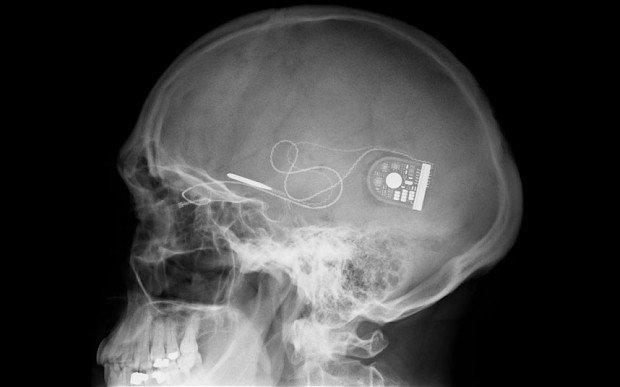LONDON, May 3 (UPI) -- Two British men have regained partial but "useful" vision after being given electronic eye implants in the first successful trial in Britain, scientists say.
The patients, suffering from an inherited form of blindness called retinitis pigmentosa, experienced "useful vision" -- able to distinguish black from white and see the rough outlines of objects -- just weeks after having a light-sensitive microchip inserted into the back of their eye, The Daily Telegraph reported Thursday.















